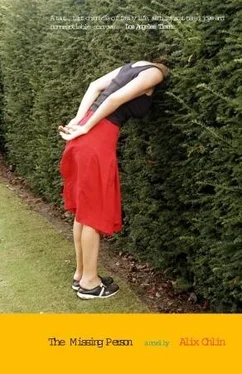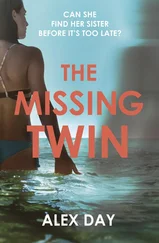A latch clicked and my mother stepped through the door, dropping an enormous tote bag on the table in the front hall.
“Any word from your brother?”
I shook my head and she nodded, her shoulders sagging a little. Before I could say anything else she went into the kitchen and almost immediately set to work fixing dinner. I put my drink down and joined her, and before long she was giving me intricate details of a trip she was planning for a client, who for some reason wanted to visit every single country in South America.
“You wouldn’t believe how long this takes. These places don’t have faxes. They don’t even have phones. I’m making reservations by letter, and they send back some dog-eared piece of paper that says, ‘Everything okay, come now, pay later.’ They must attach the note to a mule or something, then the mule trots down a dirt road that eventually leads by the post office. I do believe that mules are involved in these places, Lynn. I’ll just be pleased if Dr. Trujillo comes back alive.”
She kept this up all through dinner preparations. I thought about how people say travel broadens the mind, and what this meant for my mother, who was expert at organizing its every feature but never, ever went anywhere herself. She’d barely been out of town since I was in high school. There was something either heroic or insane about it. I set the table for our tidy, well-balanced meal: baked chicken, green beans, and rice. When my mother offered me a glass of milk, I laughed and shook my head.
“What?” she said.
I shrugged. “This is nice,” I told her. I never cooked in Brooklyn and had almost forgotten people still did. I assumed the world had completely gone over to takeout. My mother sat down opposite me and smiled.
“So, how long have you and David been going out?”
She set her fork and knife down without touching her food. “Well, I wouldn’t call it that, Lynn.”
“What would you call it?”
“We enjoy each other’s company.”
“So, how long have you and David been enjoying each other’s company?”
She cut her chicken into neat geometric pieces, took a dainty sip of milk, and carefully wiped her mouth with her napkin, an act of stalling so obvious as to be almost a parody of stalling. “A while,” she finally said.
“I see. Where does he live, anyway?”
“Still in the same place, next to our old house.”
“Oh.” I looked at her, but she was intently focused on the task of spearing a green bean evenly on the tines of her fork. “What happened to his family?”
“Nothing happened to them,” she said piously, then ate her bean and moved on to the next one. “Donny’s still in high school, and Darren got a hockey scholarship to a college in Connecticut. They’re both lovely boys, and David is justly proud. They both talk to him regularly. Darren calls home every Sunday evening at seven o’clock sharp.”
“Yeah, well,” I said, “that sounds great. So, excuse me for asking, but what’s the deal with his wife? They got divorced?”
“No, they didn’t.” Her voice was tight and even.
“You’re kidding.”
“I’m not kidding.” She kept on eating, one green bean at a time, the chicken in its orderly pieces.
“You’re kidding,” I said again.
“What did I just say?”
“You’re having an affair with a married man.”
“David’s wife is very ill. She’s confined to the house. We enjoy each other’s company, and accept the situation, and I expect you to accept it too.”
“You’re kidding.”
“Stop saying that.”
“Mom,” I said. She raised her eyebrows at me, and I opened my mouth but said nothing. Fortunately, I had chicken to fill the void. We sat in confused silence, cleaning our plates as if our lives depended on it.
When we finished, she cleared the table and took everything into the kitchen. “Lynnie, you do the dishes,” she said. “I’m going out.”
“It’s eight o’clock.”
“I know what time it is.”
“Where are you going? To see David?”
At this she turned, her eyes narrow, and the look she gave me was frightening but familiar. It was the same look she’d given me in high school when I came home with my hair dyed green, and closely related to those she’d offered when I was in college in Pennsylvania, talking about feminist art all the time, hatching plans to move to New York and referring to Albuquerque as a cultural backwater.
“You’ve been here exactly one day,” she said. “Don’t start telling me what to do.”
“You tell me what to do all the time.”
“That’s completely, one-hundred-percent different,” she said. I did the dishes, feeling irritable and put-upon. Afterwards, I went out into the suburban night. The air was warm, and the moon rose pale and low and clear above a gray bank of clouds. The enormous cockroaches that terrified me as a child scrambled scratchily across the sidewalks, great hordes of them glistening in the streetlights. For the second time that day I drove my brother’s car to his apartment, though now the streets were neon-lit. The same cars as before were parked outside his building, amid a jumble of bicycles and skateboards. Wylie’s door stood ajar, held open by a brick, and yellow light fell onto the landing. That’s where the smell hit me: dried sweat, old clothes, and a crush of bodies, the smellable ideology of water conservationists. I held my breath and walked inside, straight into Angus Beam.
“Hello, Wylie’s sister,” he said, his smile as wide as ever. “I’m glad you joined us.”
“I told you before, my name’s Lynn.”
“Lynn.” He shook my hand and held on to it. He was wearing a faded T-shirt with a million tiny holes in it, as if he’d been attacked by kittens. Up close, his skin was covered with light freckles that disappeared from view when you were farther away — pointillist pigmentation. There were even freckles on his eyelids.
“Angus Beam,” I said without thinking, “you should stay out of the sun.”
He laughed. “Why is that?”
“Your complexion. You’re extremely vulnerable.”
“You’re sweet to be concerned,” he said. “I always wear a hat.”
He stood aside and made a grand welcoming gesture. I remembered what my mother used to say when Wylie and I came in after playing outside all day: “Here they are, the great unwashed.”
The great unwashed were gathered all around me in Wylie’s apartment. The men wore khaki shorts, bright T-shirts with equally vivid logos in contrasting colors, and hiking boots with thick socks bunched halfway up their calves. The women wore dresses of flimsy, multicolored Indian fabric and their hair in long, loose ponytails. In fact there was hair everywhere, on chins and armpits and legs. From their belt loops or backpacks dangled Swiss Army knives, leather pouches, water bottles, lidded coffee cups. They looked like they either had just come back from camping or were prepared to set off at a moment’s notice. A few people glanced at me and smiled inconclusively. Others conferred in twos or threes, whispering urgently or nodding fast as they consulted notepads and maps. I couldn’t believe how many people had crammed themselves inside this one room. It was very hot. I was breathing through my mouth and hoping that it wasn’t too noticeable.
In the back of the room, behind the kitchen counter, I thought I glimpsed Wylie. It was hard to tell in the swarm of people, and his back was turned, but he had the right slouching, skinny build and the right dark, floppy hair. I hadn’t imagined there could be circumstances in which I might not recognize my own brother. Wylie, if it was him, was talking to a middle-aged Native American man with thick glasses and long, braided hair, his large hands sporting several bulky turquoise rings.
Читать дальше












